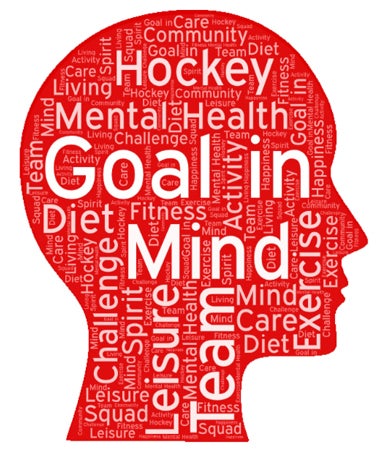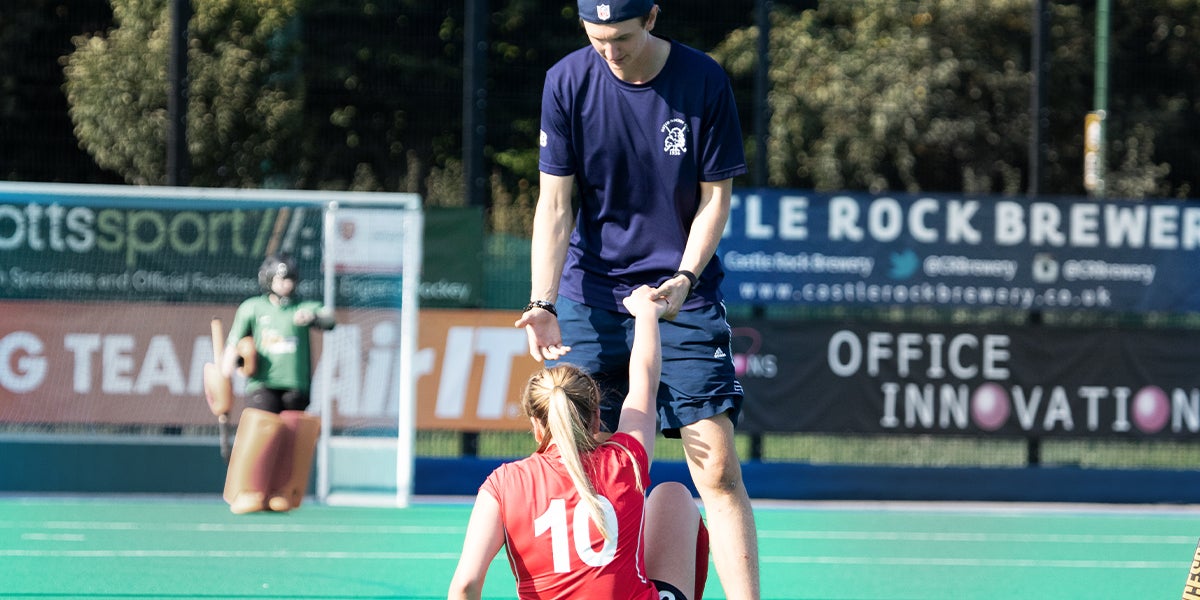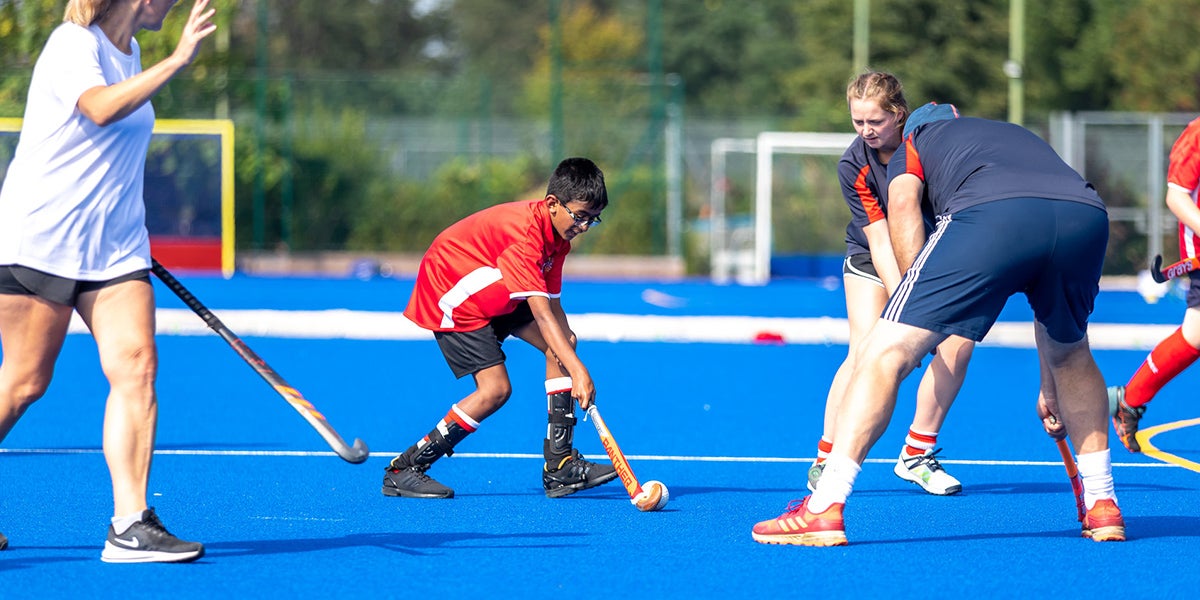England Hockey has recently made a commitment to the Sport and Recreation Alliance ‘Mental Health in Sport Charter’ and have developed an action plan that looks at mental wellbeing across the whole sport. The campaign ‘Goal in Mind’ highlights the importance of mental health and wellbeing and the benefits that hockey can bring.

The links between good physical health and mental wellbeing are well recognised. Physical activity such as playing hockey can be very beneficial for mental wellbeing and there has never been a more important time to look after our mental wellbeing.
A recent Public Health England survey reveals more than eight in ten (83%) people have experienced early signs of poor mental wellbeing including feeling anxious, stressed, having low mood or trouble sleeping in the last 12 months. We recognise that these can be a natural response to the challenges of everyday life, but they can become more serious if people do not act.
England Hockey is committed to informing and supporting all England/Great Britain Hockey employees, athletes, clubs, organisations and participants by raising awareness of mental wellbeing; helping them to reach and maintain their wellbeing goals through education and training, participating in wellbeing activities and making use of all the valuable resources available. Our goal is to tackle the stigma around mental wellbeing and to create an open and supportive culture where conversations about mental health and wellbeing are commonplace.
Using the power of sport and the framework of the Five Ways to Wellbeing, our GOAL is to support everyone involved in our sport to achieve their mental wellbeing GOALS and have healthy MINDS!
Here you will find links to many resources to help you in achieving these goals.

-
When someone is experiencing a mental wellbeing problem, supportive and reliable information can change their life. Mind, one of the leading mental wellbeing charities in England and Wales, provides information and guidance for anyone involved in hockey who may be dealing with mental wellbeing problems and those supporting them.
Mind’s Infoline offers callers confidential help and information Tel: 0300 123 3393
-
Explains what mental wellbeing problems are, what may cause them, and the many kinds of help, treatment and support that are available.
-
Many people experiencing a mental wellbeing problem will speak to friends and family before they speak to a health professional, so the support you offer can be valuable.
-
This video, produced by Mind, UK Coaching and Public Health England provides guidance on how coaches can promote good mental wellbeing through their coaching. Promoting good mental wellbeing through your coaching.
UK Coaching’s Mental Health in Coaching Guidance has some useful information on the role coaches play in supporting others, emotionally as well as physically. It highlights the impact that this can have on a coach’s own mental wellbeing and provides guidance on how coaches can understand and maintain their own mental wellbeing.
While people may have the best intentions, coaches and others should not give counselling and support which they are not qualified to offer.
It is important that the support is appropriate and crucial that professional help is sought if needed.
Individuals should be directed to seek advice from their GP if they are struggling, and families can approach their children’s schools if they are concerned about their child.
-
Clubs, schools, colleges and universities may want to arrange mental wellbeing training for coaches, staff, volunteers, players etc. There are a number of reputable organisations and charities offering training such as the Mental Health First Aid courses.
When organising courses always check that the trainer delivering the course is appropriately qualified and that the content is relevant for the attendees.
MIND runs mental health courses:
Mental Health Awareness for Sport and Physical Activity
The StreetGames charity runs a course aimed at coaches, staff and other volunteers working with young people:


